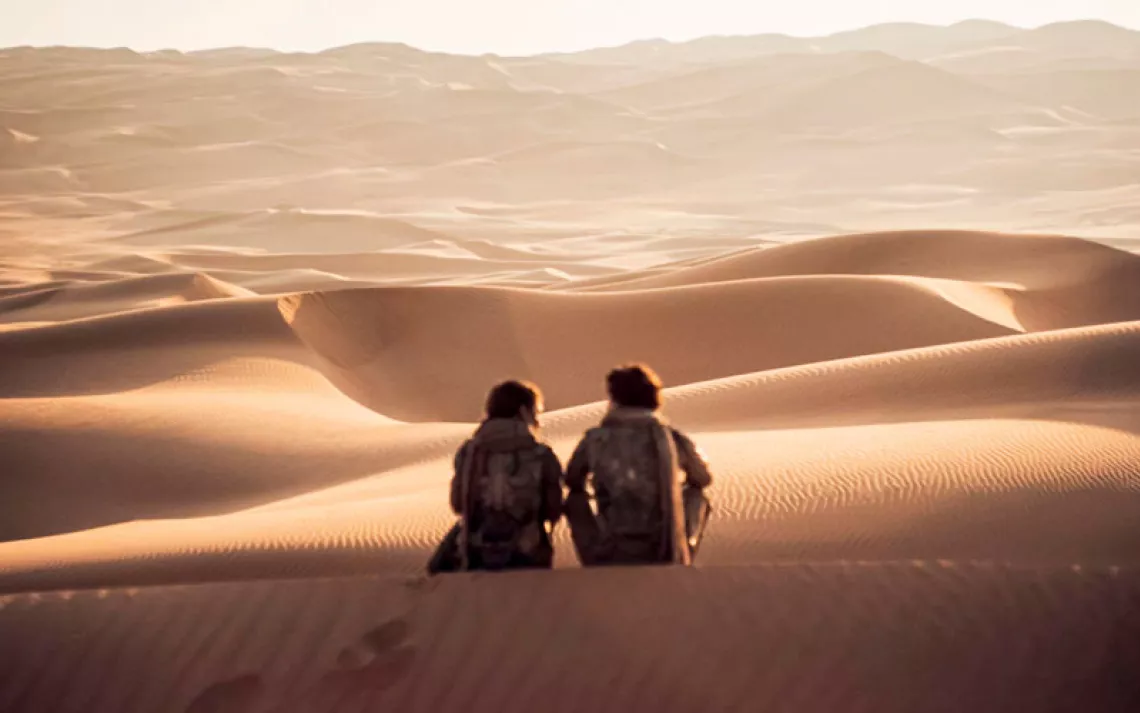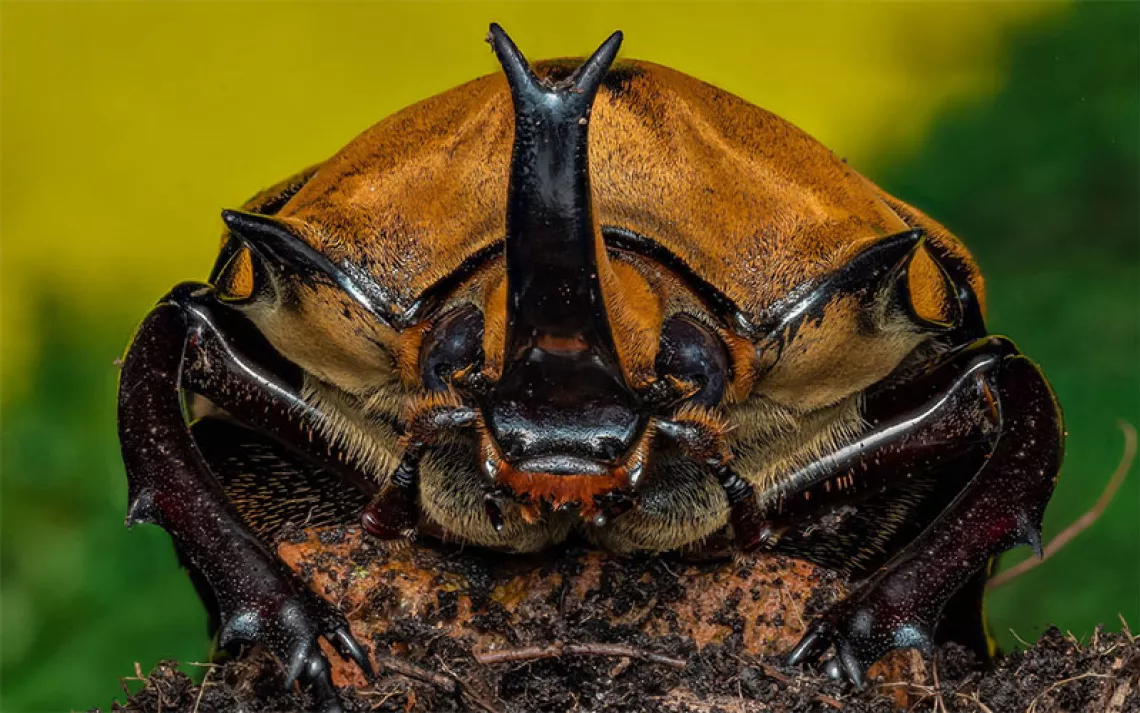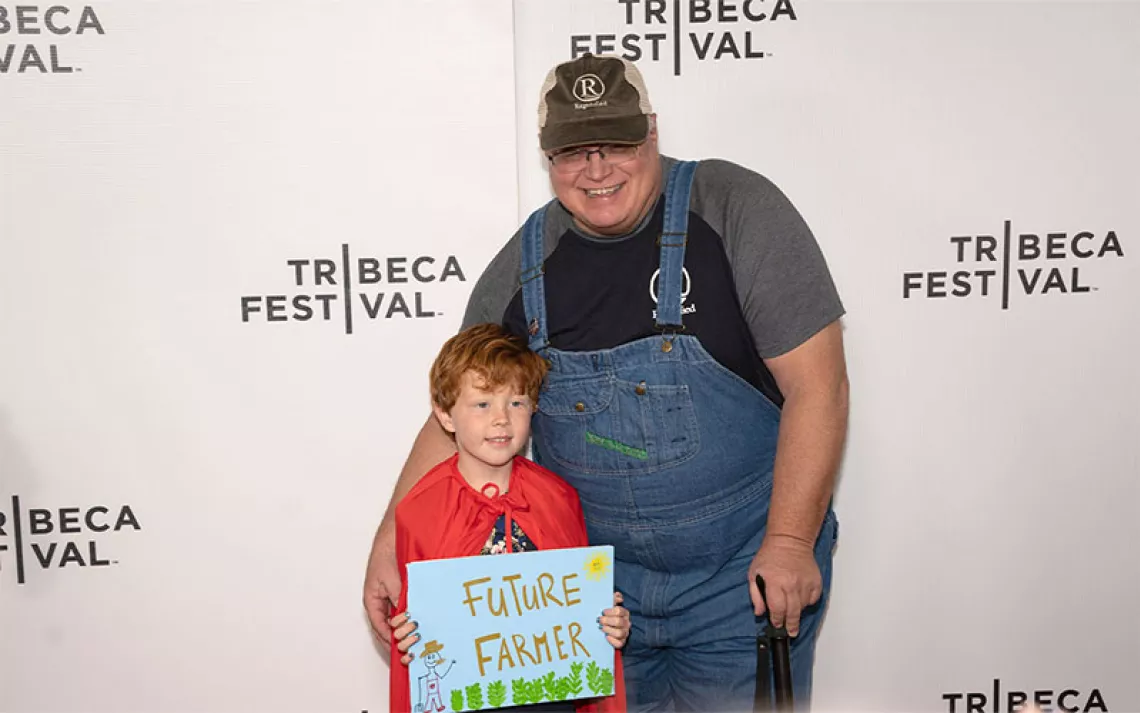New Film Deftly Indicts Public Health Regulators
“What Lies Upstream” isn’t just another documentary about a water crisis
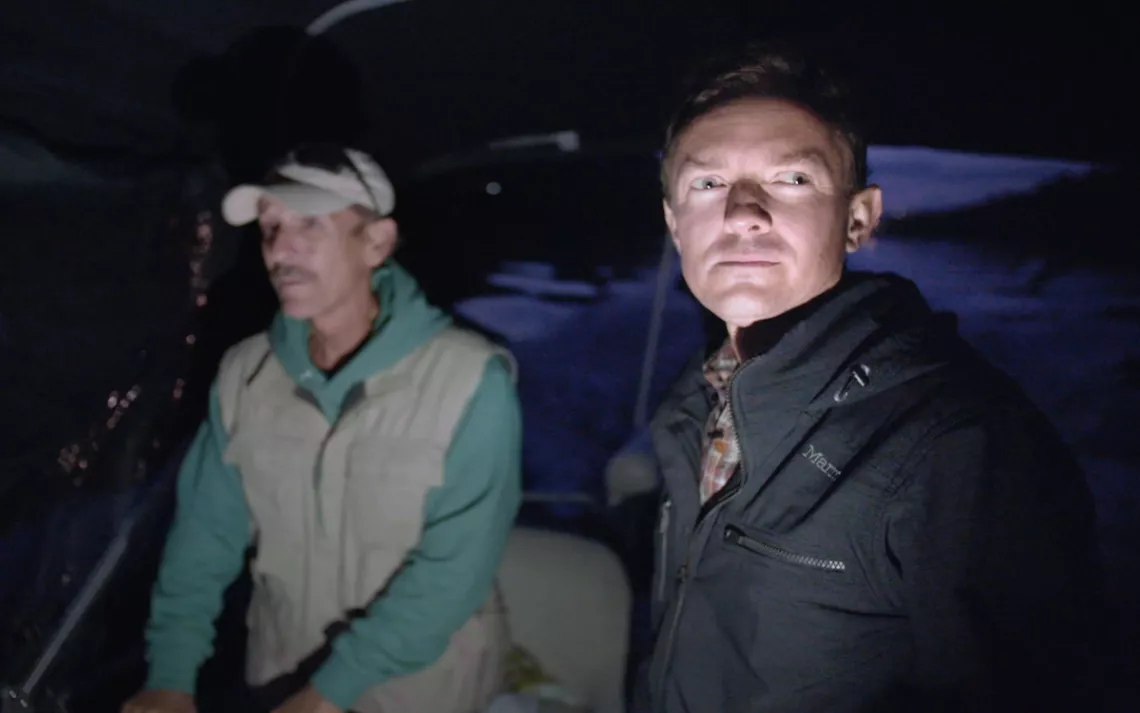
Photos courtesy of Hyrax Films
It started with a text from Mom. In January 2014, documentarian Cullen Hoback received word from his mother that a chemical spill had left 300,000 West Virginians living in a swath of coal country known as “Chemical Valley”—so dubbed because it houses the nation’s largest concentration of chemical plants—with foul-smelling drinking water. The source was a rusting tank owned by a chemical company with the you-can’t-make-this-stuff-up name of Freedom Industries, and the substance leaking into Chemical Valley’s waterways was MCHM, a detergent from coal.
Though raised in California, Hoback had enjoyed idyllic childhood visits to see relatives in West Virginia, so he hopped on the next flight out of Los Angeles to Charleston, his camera in tow. The creator of 2013’s Terms and Conditions May Apply, about the spurious ways in which online service providers collect and use users’ information, Hoback was hoping to chronicle the crisis in West Virginia and get to the bottom of why MCHM was producing such a noxious smell. He wanted to further inform citizens of oft-overlooked risks to which they are exposed through quotidian actions such as signing onto Facebook or sipping water from the tap.
More than three years later, he emerged with an ambitious film that’s far more national in scope. Hyrax Films’ What Lies Upstream positions the recent water catastrophes in West Virginia and Flint, Michigan, as springboards to discuss the systemic—and often shocking—lack of oversight for the water we all drink, bathe in, and cook with. And the horror movie-esque title couldn’t be more appropriate for a film about a system so tragically broken.
What Lies Upstream premiered in New York City and Los Angeles on Friday, and as of tomorrow is streaming on demand. It reveals how and why government regulators from the EPA and CDC (Centers for Disease Control and Prevention) tend to defer to the companies they’re supposed to regulate, and why covering up public health crises can behoove regulators’ careers. It shows how easy it is for corporations to sidestep rules and under-test chemicals, and—through a jaw-dropping scene in which Hoback depicts industry lobbyists blatantly gutting laws originally designed to hold companies accountable—highlights the fallacy of legislative “fixes.”
On camera, Hoback talks to angry West Virginians who say they’ll defend coal until its dying day, but that they at least expect their water to be safe. He talks to whistleblowers. He digs through records to prove how infrequently safety checks are performed, and that tens of thousands of violations of the Clean Water Act go uninvestigated in West Virginia and other states each year. Perhaps most hauntingly, the film illustrates the increasingly politicized nature of science, the various ways data gets manipulated to the point that it’s “fake science” (the producer of MCHM, for instance, barely has any data on the substance’s effect on humans), and why such a phenomenon is every bit as damaging to our nation as fake news.
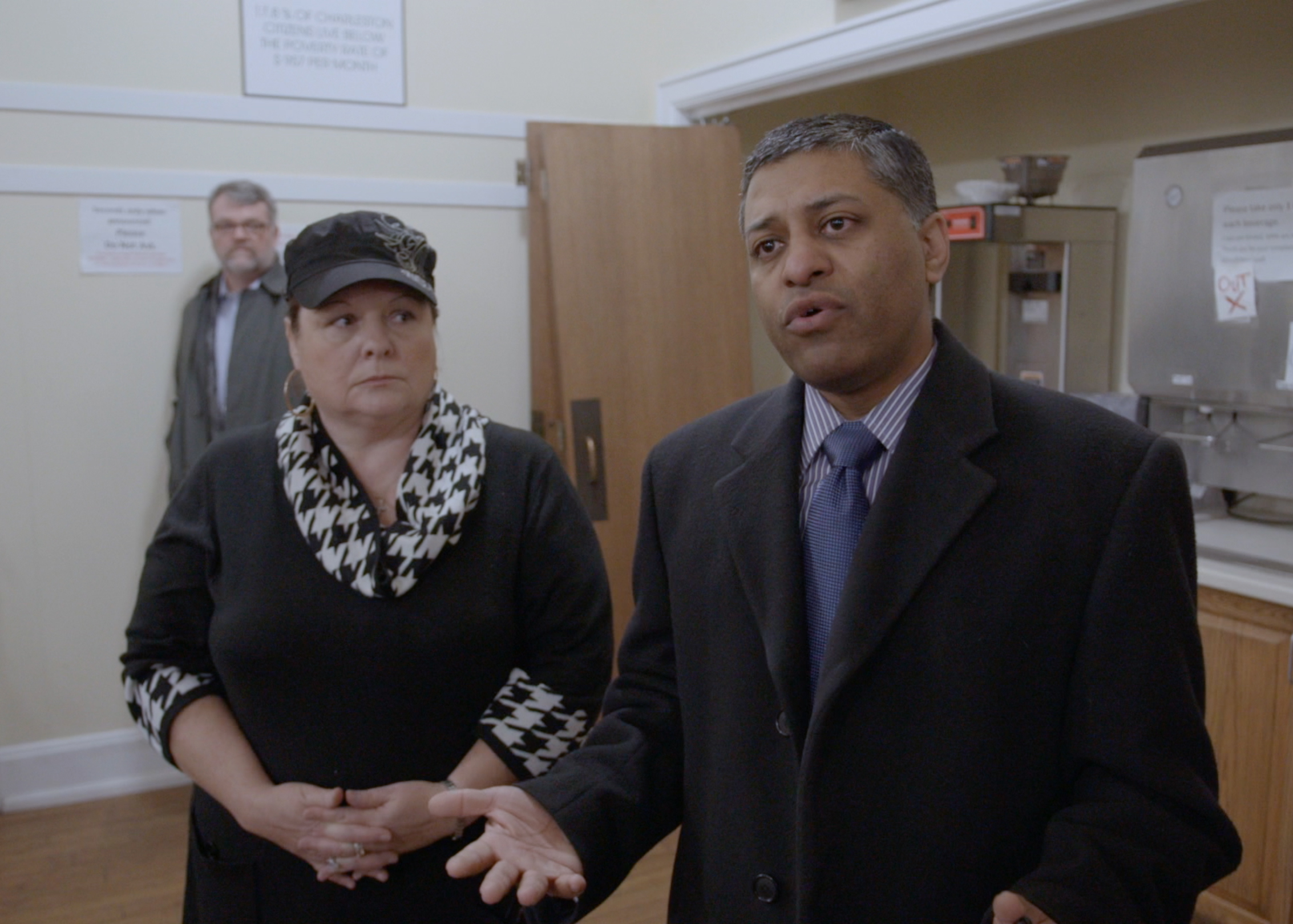 Hoback documents the anguished community meetings, the communities already besieged by coal-related cancers, and the glaring lack of answers from the officials supposedly in place to protect people. A nuanced and character-driven film, What Lies Upstream’s fact-based exploration shows that such problems are as tied to human nature as they are to systemic flaws. Viewers meet Dr. Rahul Gupta, who begins the movie as the outspoken executive director of the local health department. Shortly after the spill, he’s shown sitting on a concerned residents’ panel alongside renowned citizen-activist Erin Brockovich, who to raucous applause claims she’s never seen a health official stand stand up for the people like Gupta had. But as Gupta rises in stature and becomes the state’s commissioner of Health and Human Resources, he's less of a dogged champion for public health and becomes rather bureaucratically hamstrung, self-censored—effectively silenced by the political machine. Meanwhile Randy Huffman, who starts the film as the industry-friendly secretary of West Virginia’s Department of Environmental Protection, leaves the job, partially based on extended exposure to unsuspecting citizens’ woes—among them birth and developmental defects, skin problems, and yet more cancer.
Hoback documents the anguished community meetings, the communities already besieged by coal-related cancers, and the glaring lack of answers from the officials supposedly in place to protect people. A nuanced and character-driven film, What Lies Upstream’s fact-based exploration shows that such problems are as tied to human nature as they are to systemic flaws. Viewers meet Dr. Rahul Gupta, who begins the movie as the outspoken executive director of the local health department. Shortly after the spill, he’s shown sitting on a concerned residents’ panel alongside renowned citizen-activist Erin Brockovich, who to raucous applause claims she’s never seen a health official stand stand up for the people like Gupta had. But as Gupta rises in stature and becomes the state’s commissioner of Health and Human Resources, he's less of a dogged champion for public health and becomes rather bureaucratically hamstrung, self-censored—effectively silenced by the political machine. Meanwhile Randy Huffman, who starts the film as the industry-friendly secretary of West Virginia’s Department of Environmental Protection, leaves the job, partially based on extended exposure to unsuspecting citizens’ woes—among them birth and developmental defects, skin problems, and yet more cancer.
Hoback is a filmmaker who relies on his own on-screen investigative methods (he takes it upon himself to test the quality of the river Freedom Industries contaminates), and quietly confrontational probing (in one scene, Hoback hijacks the mic at a water company PR party to tell guests what’s really in their water), to produce answers. His often surprising film clearly synthesizes complex information about the seedy underbelly of governmental administration. To learn more about what concerned citizens can do to protect themselves and their communities, and ways to better navigate systemic shortcomings, Sierra called up the intrepid documentarian.
Sierra: What do you hope viewers take away from your film?
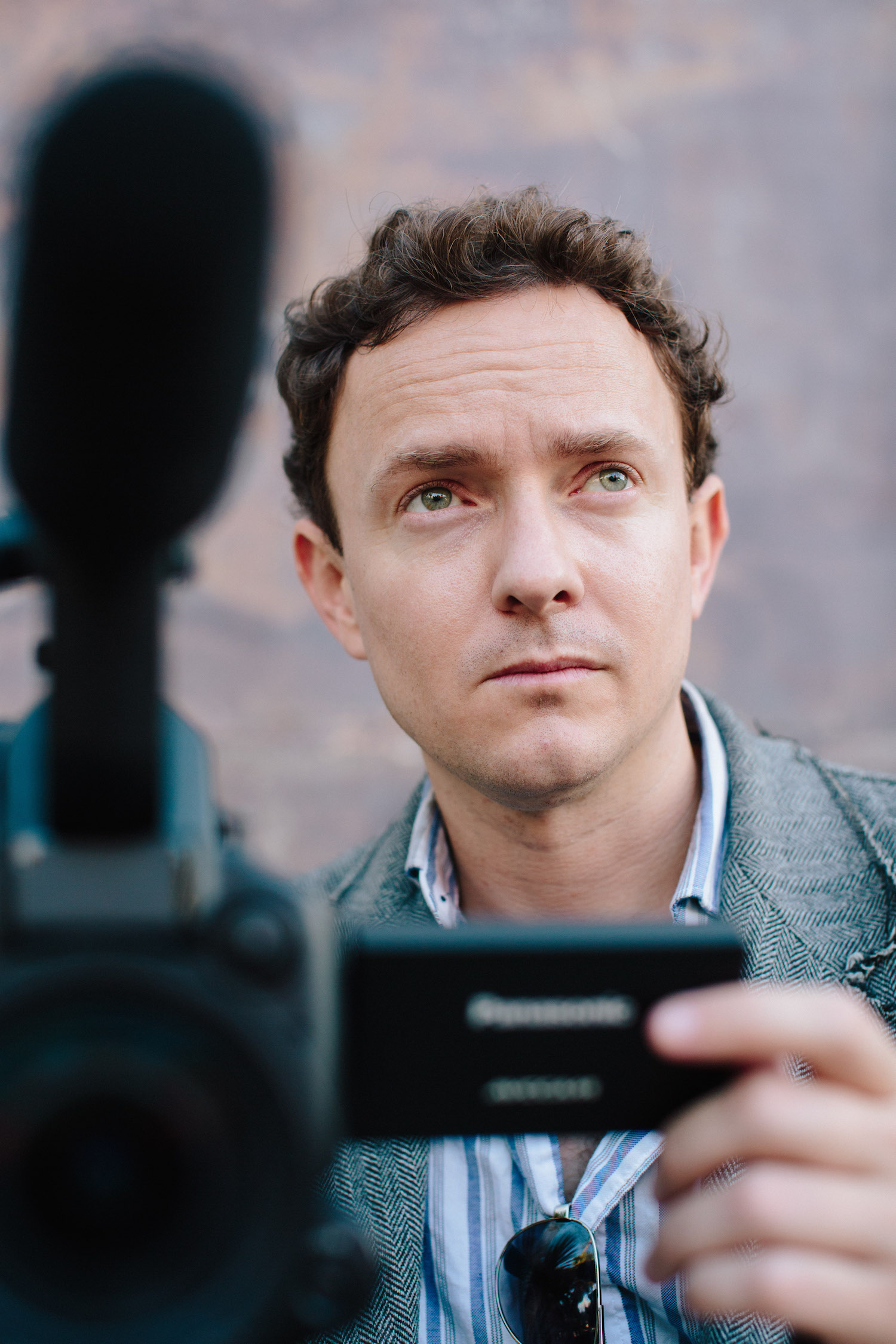 Cullen Hoback: My hope is that people think a bit differently every time they drink from the tap, and also think harder about what they flush down the drain. I also hope it reminds us all to question our trust in our scientific agencies and demand more from them—because we need our environmental policemen to be doing their jobs. We’re in a complicated period right now because the EPA is being wildly dismantled, but at the same time, it wasn’t really doing its job before. So, it’s a very troubling problem to try and solve. Do we look in the future to an EPA whose regulators are actually incentivized to do their jobs, where there’s actually a culture of enforcement? We have to demand more from the people who are supposed to be our shepherds. And I think people should fight locally—the federal level is there as a safety net. They’re supposed to step up when baseline protections are not being followed, but as we saw in West Virginia and Flint, when we ask them to step up, they tend to go out of their way not to.
Cullen Hoback: My hope is that people think a bit differently every time they drink from the tap, and also think harder about what they flush down the drain. I also hope it reminds us all to question our trust in our scientific agencies and demand more from them—because we need our environmental policemen to be doing their jobs. We’re in a complicated period right now because the EPA is being wildly dismantled, but at the same time, it wasn’t really doing its job before. So, it’s a very troubling problem to try and solve. Do we look in the future to an EPA whose regulators are actually incentivized to do their jobs, where there’s actually a culture of enforcement? We have to demand more from the people who are supposed to be our shepherds. And I think people should fight locally—the federal level is there as a safety net. They’re supposed to step up when baseline protections are not being followed, but as we saw in West Virginia and Flint, when we ask them to step up, they tend to go out of their way not to.
Why exactly do you think the people charged with regulating environmental and public health tend to distance themselves from such crises?
Because they don’t want to look like they’re not doing their jobs; they’re too busy protecting their reputations. You see in the film that the EPA has showed its willingness to manufacture science to protect its often failed policies. The flavor of the science the EPA is forced to create often comes down to the will of political appointees. Especially under Trump, we’re seeing independent advisory boards gutted and replaced with industry insiders who turn science into red-versus-blue issues. For a scientific agency to develop fake science and propagandize science undermines everything. When someone’s salary depends on them not understanding something, they’re probably not going to understand it. It’s really frightening, but we have to educate ourselves, and make sure it doesn’t muddy science so fully.
And the problem is partially our fault. The public needs to accept the fact that some bad things will be found, and not panic every time something goes wrong. Because that makes them not want to tell us—they don’t want the fallout. That’s when the cover-ups happen. No one wants to get yelled at by their boss or fired. But, they of course shouldn’t be cherry-picking what’s important and what’s not. We need to start developing a line of communication between the scientists and the public. It’s not achievable right away to change how things are done at the federal level, but separating politics from scientists, and coming up with ways to give these agencies more accountability, is a doable thing. Let’s get the regulations we do have enforced, and then work from there.
What was the most shocking thing you learned about government regulators’ relationships to the companies they’re supposed to supervise?
The list of shocking things that now feel normal is long. But I’m probably mostly shocked that regulators often trust coal, oil, and gas companies to self-report their use of resources. It’s like asking the mafia, “How many taxes did you pay this year?”
Did the process of creating this film make you fear for your own health?
On National Geographic’s recent “happy places” survey, Charleston came in dead last. I certainly felt the depressive malaise that seems to have taken hold there, but I wasn’t really worried about my physical health. I mean, I was in and out for about a year. When I talked to the scientist who revealed that MCHM was far more toxic than the public had previously been led to believe, he was shocked that I’d been showering in that water for months. But you have people living there for decades, and any potential consequences felt far less risky than what a lot of journalists subject themselves to.
In terms of drinking, I only drink alcohol now [laughs]—quadruple-filtered hard grain alcohol. But in all serious, every time I drink water now, I think, “What the hell is in this?” You can always try to make better and safer personal decisions, but we can only control so much. In terms of food, for instance, you can shop locally all you want for carefully raised eggs and chickens that grew up with friends, but then you have to travel, and you go out to a restaurant, and you have no idea. The same is true with water—the problem can’t be fixed with a filter. If you can afford a better system, that’s great, but solutions have to be holistic and systemic. Everyone will be protected when we finally change the way we treat our water, and our soil, too. Because that’s what ends up in our waterways. I’d love to see a national Clean Soil Act go into effect, but we’d need regulators to actually enforce it, too.
What was it like to meet Erin Brockovich?
Erin is full of energy and wildly passionate and charismatic. Any time you meet somebody who’s been such a champion—who’s developed the strength to stand up against powerful figures and corporations and politicians, time and again—it’s invigorating and inspiring. She’s a cool lady, and I tip my hat to her. I hope there are more people in the future who follow in her footsteps—whose investigative curiosity and intuition lead them to take agencies to task, to ask questions and hold them accountable. Remember, anyone can go out with a camera and seek out politicians. Generally speaking, government buildings are open, and cameras have the power to light up concerns and make them public.
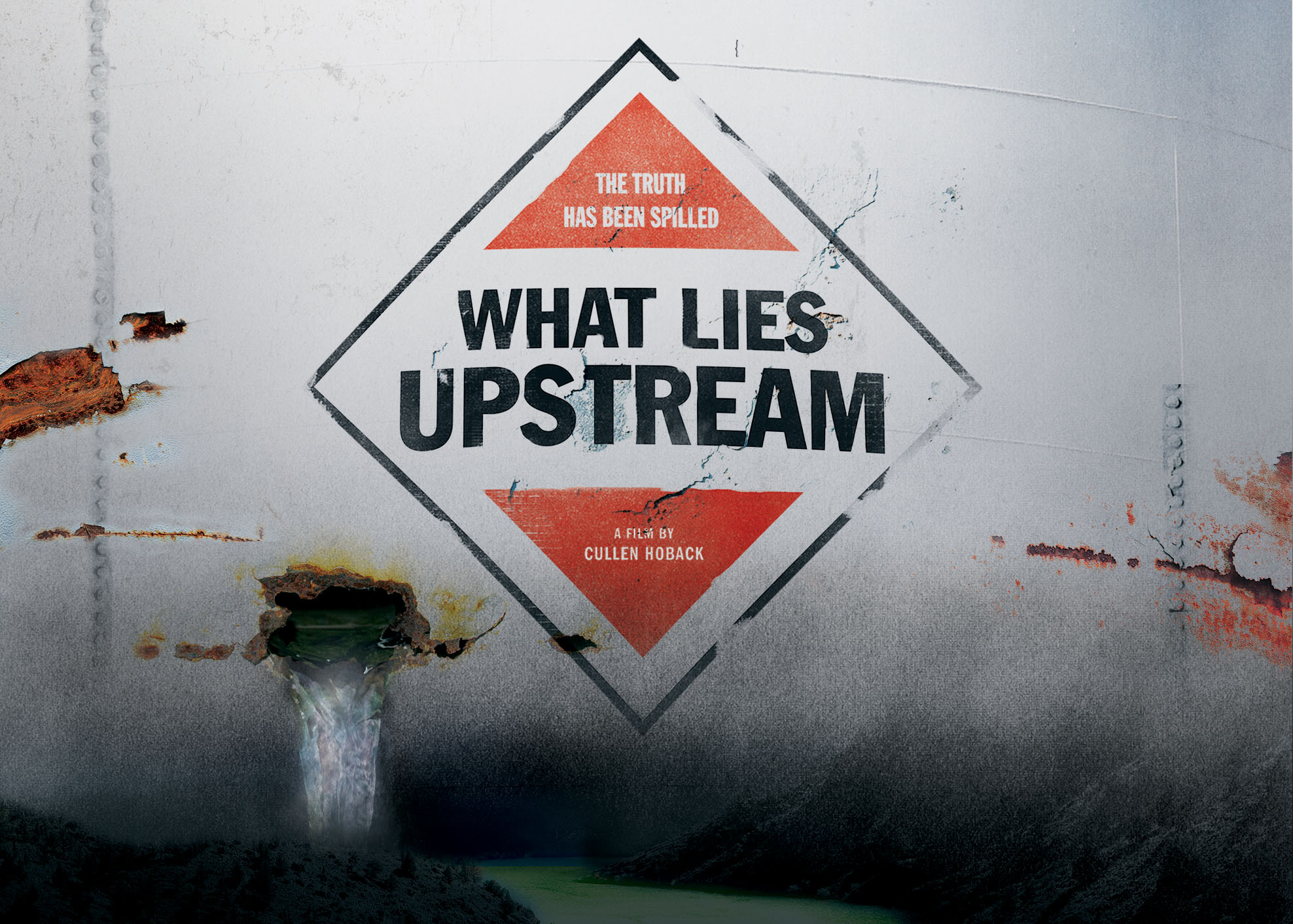
 The Magazine of The Sierra Club
The Magazine of The Sierra Club

